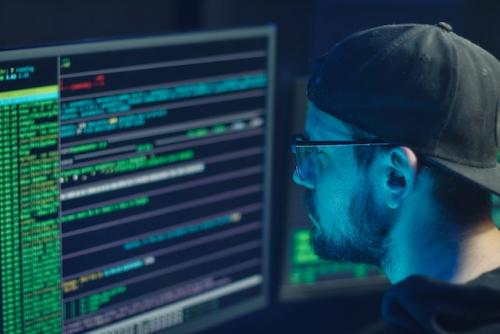How VPN Can Protect Your Financial Transactions from Cybercriminals
Financial transactions are essential for businesses and individuals, and they are often conducted online. However, online financial transactions can expose your sensitive information to cybercriminals who are always looking for ways to steal personal data, such as bank account numbers, credit card details, and other valuable information. To protect yourself and your business from cyber threats, you need a Virtual Private Network (VPN). In this article, we will explain how VPN can protect your financial transactions from cybercriminals.
What is a VPN?
A Virtual Private Network (VPN) is a secure and encrypted connection between your device and the internet. VPNs are designed to protect your privacy and online security by creating a secure and private tunnel between your device and the internet. This means that your online activity, including your financial transactions, is encrypted and hidden from prying eyes.
How VPN Can Protect Your Financial Transactions?
Using a VPN can protect your financial transactions in several ways, including:
Encryption: VPNs encrypt your online activity, including your financial transactions, so that it cannot be intercepted by cybercriminals. Encryption is the process of encoding data to make it unreadable to anyone except the intended recipient. By encrypting your financial transactions, you can ensure that your sensitive information remains private and secure.
Anonymous browsing: VPNs allow you to browse the internet anonymously, which means that your online activity cannot be traced back to you. This is important because cybercriminals can use your browsing history to gather information about you, including your financial information.
Public Wi-Fi Protection: Public Wi-Fi networks are often unsecured, which means that cybercriminals can easily intercept your online activity, including your financial transactions. However, with a VPN, you can protect your financial transactions even when using public Wi-Fi networks.
Location Masking: VPNs can also mask your location, which means that cybercriminals cannot determine your physical location. This is important because cybercriminals often target individuals based on their location, so by masking your location, you can protect yourself from cyber attacks.
Firewall Protection: VPNs often come with a built-in firewall, which provides an additional layer of protection against cyber attacks. Firewalls monitor incoming and outgoing traffic to your device and can block any suspicious activity.
Conclusion
In conclusion, using a VPN is an essential step to protect your financial transactions from cybercriminals. A VPN can provide encryption, anonymous browsing, public Wi-Fi protection, location masking, and firewall protection. By using a VPN, you can ensure that your sensitive financial information remains private and secure. If you are not using a VPN yet, it's time to start protecting yourself and your business from cyber threats.



Comments